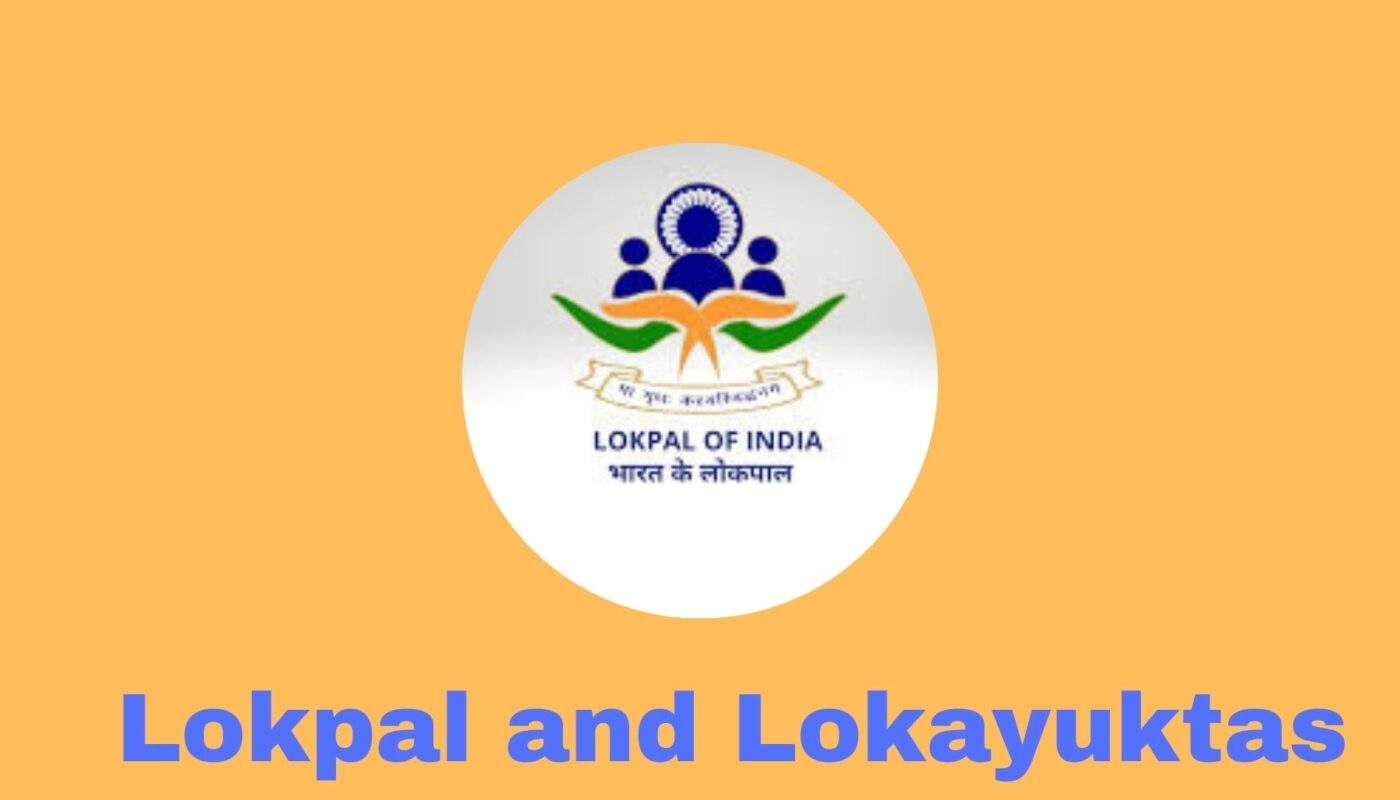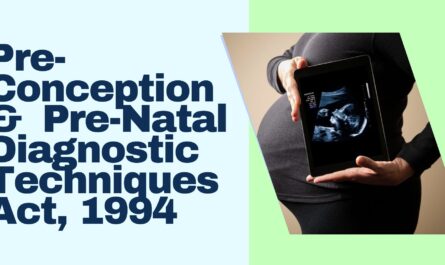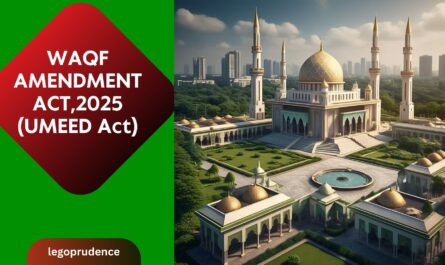Background of Lokpal & Lokauktha Act, 2013
- In India, the concept of constitutional ombudsman was first proposed by the then law minister Ashok Kumar Sen in parliament in the early 1960s.
- The terms ‘Lokpal’ was coined by a member of parliament Dr. L.M. Singhvi in 1963 as the Indian model of the ombudsman for the redressal of public grievances, during a debate on grievance redressal mechanisms.
- In 1966, the First Administrative Reforms Commission under Morarji Desai recommended the setting up of two independent authorities- at the central and state level, to look into complaints against public functionaries, including MPs. for the purpose of redressing citizen grievances
- The Lokpal Bill was first introduced in the Lok Sabha in the 1968, it lapsed with the dissolution of the Lok Sabha, and since then has lapsed in the Lok Sabha many times.
- Maharashtra was the first state to introduce Lokayukta through The Maharashtra Lokayukta and Upa-Lokayuktas Act in 1971.
- In 2002, the Commission to Review the Working of the Constitution headed by M.N. Venkatachaliah recommended the appointment of the Lokpal and Lokayuktas, also recommended that the PM be kept out of the ambit of the authority.
- In 2005, the Second Administrative Reforms Commission chaired by Veerappa Moily recommended that the office of Lokpal should be established without delay.
- Till 2011 eight attempts were made to pass the Bill, but all met with failure.
- In 2011, the government formed a Group of Ministers, chaired by Pranab Mukherjee to suggest measures to tackle corruption and examine the proposal of a Lokpal Bill.
- “India Against Corruption movement” led by Anna Hazare put pressure on the United Progressive Alliance (UPA) government at the Centre and resulted in the passing of the Lokpal and Lokayuktas Bill, 2013, in both the Houses of Parliament.
- It received assent from President on 1 January 2014 and came into force on 16 January 2014.
The establishment of Lokpal at the central level and Lokayukta at the state level in India is driven by the need to combat corruption, enhance transparency, and ensure accountability in public administration. The creation of these anti-corruption ombudsman institutions addresses various concerns related to corruption in the country. Lokpal is the apex anti-corruption ombudsman at the central level in India.
Objectives of Lokpal & Lokaukta Act, 2013
Corruption Eradication
The Lokpal and Lokayukta Act of 2013 was established to serve as a robust mechanism for eradicating corruption from the public sphere. By providing a dedicated platform for investigating and prosecuting instances of corruption, the act aims to root out systemic graft and malpractice that undermine the integrity of public institutions.
Promoting Accountability
One of the fundamental pillars of the act is to promote accountability among public officials. By holding individuals in positions of power answerable for their decisions and actions, the Lokpal and Lokayukta instill a culture of responsibility and ethical conduct within the government machinery.
Ensuring Transparency
Transparency is essential for fostering trust between the government and its citizens. The act mandates transparency in the operations of public officials and government bodies, ensuring that processes and decisions are made openly and accountably to the public.
Building Trust
Through their independent and impartial oversight functions, the Lokpal and Lokayukta aim to build trust among the populace. By demonstrating a commitment to upholding ethical standards and combating corruption, these institutions work towards restoring faith in the integrity of governance.
Restoring Confidence
Instances of corruption often erode public confidence in the government. The Lokpal and Lokayukta act as mechanisms to investigate and prosecute corrupt practices, thereby working to restore faith in the fairness and integrity of the governance system.
Dissuading Corruption
The mere presence of a strong anti-corruption framework can serve as a deterrent to individuals engaging in corrupt activities. Knowing that there are institutions like the Lokpal and Lokayukta ready to investigate and prosecute cases of corruption can dissuade individuals from engaging in malpractice.
Autonomous Bodies
As autonomous bodies, the Lokpal and Lokayukta are granted independence in their operations. This autonomy allows them to carry out investigations and inquiries without external interference, ensuring that their actions are impartial and free from undue influence.
Access to Justice
The act provides citizens with a formal avenue to seek justice in cases of corruption. By offering a platform for individuals to report corrupt activities and seek redressal, the Lokpal and Lokayukta ensure that victims of corruption have a means to seek justice and hold wrongdoers accountable.
Empowering Whistleblowers
Protecting whistleblowers is crucial in the fight against corruption. By safeguarding individuals who come forward to expose corruption and malpractice, the act encourages transparency and accountability within public institutions by creating an environment where whistleblowers feel safe to report wrongdoing.
Fair and Impartial Inquiries
The Lokpal and Lokayukta conduct inquiries into allegations of corruption with fairness and impartiality. By ensuring that investigations are carried out transparently, without bias or favoritism, these institutions uphold the principles of justice and accountability in their quest to combat corruption effectively.
Structure of the Lokpal
The Lokpal’s composition entails a chairperson and up to 8 members, forming a multi-member body.
The chairperson of the Lokpal must be either a former Chief Justice of India, a former Supreme Court Judge, or an eminent individual with impeccable integrity and exceptional expertise. This individual should possess at least 25 years of specialized experience in areas such as anti-corruption policy, public administration, vigilance, finance (including insurance and banking), law, and management.
Among the 8 members, half must be judicial members, with at least 50% representing SC/ST/OBC/minorities and women.
Judicial members of the Lokpal must be former Supreme Court Judges or former Chief Justices of High Courts. Non-judicial members are required to be distinguished individuals with unblemished integrity and remarkable proficiency. They should have a minimum of 25 years of experience in domains like anti-corruption policy, public administration, vigilance, finance (including insurance and banking), law, and management.
| Post | Description |
| Chairman | The person to be appointed as the chairperson of the Lokpal must be either: The former Chief Justice of India; or The former Judge of the Supreme Court; or An eminent person with impeccable integrity and outstanding ability, who must possess special knowledge and a minimum experience of 25 years in matters relating to: Anti-corruption policy; Public administration; Vigilance; Finance, including insurance and banking; Law and management. |
| Members | The maximum number of members must not exceed eight. These eight members must constitute: Half of the members to be judicial members; A minimum of 50% of the Members should be from SC/ ST/ OBC/ minorities and women. The judicial member of the Lokpal must be either: A former Judge of the Supreme Court or; A former Chief Justice of the High Court. |
| Non-Judicial members | The non-judicial member of the Lokpal needs to be an eminent person with flawless integrity and outstanding ability. The person must possess special knowledge and an experience of a minimum of 25 years in matters relating to: Anti-corruption policy; Public administration; Vigilance; Finance, including insurance and banking; Law and management. |
Term and Appointment
Term Limit: The Chairman and Members of the Lokpal can hold office for a maximum of 5 years or until they reach the age of 70, whichever comes first.
Presidential Appointment: The President of India appoints the members and chairperson of the Lokpal based on the recommendations put forth by a specially constituted selection committee.
Selection Committee Composition
The selection committee responsible for recommending appointments consists of the following eminent individuals:
- Prime Minister of India: Chairs the selection committee.
- Speaker of Lok Sabha
- Leader of Opposition in Lok Sabha
- Chief Justice of India or Nominee: Represents the legal fraternity.
- One Eminent Jurist: Adds legal expertise and perspective to the selection process.
Appointment Process
Selection Panel: A search panel comprising a minimum of eight members, appointed by the selection committee, is tasked with the process of selecting the chairperson and members of the Lokpal.
Recommendations: After due deliberation and assessment, the selection committee forwards its recommendations to the President for the final appointment of the chairperson and members of the Lokpal.
The procedures outlined in the Act aim to ensure a transparent and rigorous selection process for appointing key officials to the office of Lokpal, thereby upholding the integrity and effectiveness of the anti-corruption ombudsman institution.
Lokpal Search Committee
As per the Lokpal Act of 2013, the Department of Personnel and Training needs to create a list of candidates who are interested to become the chairperson or members of the Lokpal. The list was then to be presented to the proposed eight-member search committee. The committee on receiving the list shortlists the names and place them before the selection panel, headed by the Prime Minister.
The selection panel has discretion in selecting the names from the list presented by the search committee. The Lokpal and Lokayukta Act of 2013 also mandates that all states must set up the office of the Lokayukta within one year from the commencement of the Act.
Jurisdiction and powers of Lokpal
Related to Prime Ministers (PMs) and Ministers: Jurisdiction of Lokpal includes PMs, Ministers, Members of Parliament (MPs), Groups A, B, C and D officers and officials of Central Government.
Jurisdiction of the Lokpal included the Prime Minister except on allegations of corruption relating to international relations, security, public order, atomic energy and space.
The Lokpal does not have jurisdiction over Ministers and MPs in the matter of anything said in Parliament or a vote given there.
Related to Civil Servants and Bureaucrats: Its jurisdiction also includes any person who is or has been in charge (director/ manager/ secretary) of anybody/ society set up by central act or any other body financed/ controlled by central government and any other person involved in act of abetting, bribe giving or bribe-taking.
Entities Fully or Partly Financed by the Government
Inclusion: Institutions that receive full or partial financial support from the government fall within the purview of the Lokpal’s jurisdiction. This inclusion is crucial to oversee the transparent and accountable utilization of public funds and prevent corruption within government-funded entities.
Scope: The Lokpal exercises oversight over these institutions to investigate allegations of corruption, promote accountability, and uphold ethical standards in their operations.
Exclusion of Government-Aided Institutions
Exemption: Institutions that are aided by the government but not fully financed are excluded from the Lokpal’s jurisdiction. This exclusion narrows the focus of the Lokpal to entities that are directly dependent on government funds for their functioning.
Entities Receiving Foreign Contributions
Inclusion Criteria: Entities that receive donations from foreign sources exceeding Rs 10 Lakhs per year, as defined by the Foreign Contribution Regulation Act (FCRA), are brought under the purview of the Lokpal.
Regulation of Foreign Funds: By encompassing such entities, the Lokpal aims to monitor and regulate the utilization of foreign contributions to prevent misuse, corruption, or illicit activities that may arise from such funding sources.
Significance of Inclusion: Transparency and Accountability: Bringing entities financed by the government and those receiving significant foreign donations under the Lokpal’s jurisdiction enhances transparency and accountability in their operations.
Prevention of Corruption: By overseeing these entities, the Lokpal plays a vital role in preventing corruption, ensuring proper governance, and safeguarding public resources from misuse or mismanagement.
The Lokpal, as an anti-corruption ombudsman institution, is endowed with a range of significant powers to effectively combat corruption and ensure accountability within the government framework. Here is an elaboration of the powers vested in the Lokpal:
Powers Over CBI
Superintendence and Direction: The Lokpal has the authority to superintend and give directions to the Central Bureau of Investigation (CBI) in cases related to corruption. This oversight ensures that investigations are conducted diligently and impartially.
Prevention of Officer Transfer: If the Lokpal refers a case to the CBI for investigation, the investigating officer assigned to the case cannot be transferred without the approval of the Lokpal. This provision aims to prevent interference or manipulation in ongoing corruption investigations.
Inquiry Wing Powers
Civil Court Powers: The Inquiry Wing of the Lokpal is vested with powers akin to those of a civil court. This authority enables the Lokpal to summon and examine witnesses, compel the production of documents, and conduct inquiries effectively.
Assets Confiscation
Confiscation Powers: In special circumstances, the Lokpal can order the confiscation of assets, proceeds, receipts, or benefits obtained through corrupt means. This measure aims to deter individuals from engaging in corrupt practices by depriving them of ill-gotten gains.
Public Servant Actions
Recommendation Powers: The Lokpal has the authority to recommend the transfer or suspension of public servants implicated in corruption allegations. This measure helps in ensuring accountability and preventing individuals involved in corruption from influencing ongoing investigations.
Record Preservation
Prevention of Record Destruction: The Lokpal can issue directives to prevent the destruction of records during preliminary inquiries into corruption allegations. This power is crucial in preserving evidence and ensuring the integrity of investigations.
Declaration of Assets and Liabilities
Mandatory Disclosure: The Lokpal Act mandates that all public officials, along with their dependents, are required to disclose their assets and liabilities within specified timelines. This measure increases transparency and accountability among public servants.
Investigative Timelines
Preliminary Enquiry: The Lokpal can conduct a preliminary enquiry within three months, extendable by an additional three months if required.
Investigation: Investigations by the Lokpal must be completed within six months, with the possibility of extension in six-month increments.
Trial: The trial period is set at one year, extendable by another year if necessary. Special courts are to be established to expedite the trial process.
Punitive Measures
Enhanced Maximum Punishment: The Lokpal Act increases the maximum punishment under the Prevention of Corruption Act from 7 to 10 years, signaling a stricter stance against corrupt practices.
Minimum Punishments: The Act sets minimum punishments for various sections, with a minimum of three years for sections 7, 8, 9, and 12, and two years for section 15 (related to punishment for attempt). This ensures that even lower-level corruption offenses are penalized adequately.
Special Courts
Establishment of Special Courts: To ensure swift and efficient adjudication of corruption cases, the Lokpal Act mandates the establishment of special courts. These courts are dedicated to handling corruption-related cases promptly and effectively.
Limitations of Lokpal
The Lokpal, established to combat corruption and enhance transparency in India, faces several limitations that hinder its efficacy. Here are the key limitations of the Lokpal along with detailed explanations:
Inability to Initiate Proceedings Independently: The Lokpal lacks the authority to initiate investigations suo motu against public officials. This restriction can impede the Lokpal’s ability to proactively address corruption cases without relying on external complaints, potentially slowing down the investigative process.
Emphasis on Procedural Formalities Over Substance: The Lokpal and Lokayukta Act tends to focus more on procedural requirements and formalities in lodging complaints rather than delving deep into the substantive issues of corruption. This emphasis may lead to bureaucratic hurdles and delays in addressing the core concerns of corruption allegations.
Fear of Retribution for False Complaints: The provision for severe penalties against false and frivolous complaints may deter genuine whistleblowers from coming forward due to the fear of facing legal repercussions. This fear can discourage individuals from reporting instances of corruption, thereby limiting the Lokpal’s ability to uncover malpractices.
Restrictions on Anonymous Complaints: The prohibition on anonymous complaints limits the avenues through which individuals can report corruption. Without the option of anonymity, individuals may hesitate to report corruption due to concerns about their safety or potential retaliation, thereby impeding the flow of crucial information to the Lokpal.
Legal Assistance to Accused Public Servants: Providing legal assistance to accused public servants can create a perceived bias in favor of the accused, potentially undermining the integrity and impartiality of the investigation process. This provision may raise questions about the fairness of proceedings and hinder the Lokpal’s ability to conduct unbiased investigations.
Limitation Period for Filing Complaints: The Act sets a limitation period of seven years for filing complaints, restricting the investigation of older corruption cases. This limitation may prevent the redressal of historical corrupt practices and limit the scope of accountability for past wrongdoing.
Opaque Procedures for Complaints Against the Prime Minister: The lack of transparent procedures for handling complaints against the Prime Minister can raise concerns about accountability and due process. Limited transparency in dealing with such complaints may undermine public trust in the Lokpal’s impartiality and effectiveness.
Lokpal and Lokayukta Amendment Act 2016
Following the adoption of the Lokpal and Lokayukta Act 2013, Parliament enacted a bill in July 2016 amending the Lokpal and Lokayukta Act.
In the absence of a recognized Leader of the Opposition, this change allowed the leader of the biggest opposition party in the Lok Sabha to become a selection committee member.
Section 44 of the Lokpal and Lokayukta Act 2013 was also changed by this bill.
Section 44 of the Act dealt with the need for each public official to provide information about his or her assets and liabilities within 30 days of joining the government service.
This modification replaced the 30-day time restriction. It specified that government employees must declare their assets and liabilities in the form and manner prescribed by the government.
When a non-governmental organization gets more than Rs. 1 crore in government grants or more than Rs. 10 lakhs in foreign financing, the assets of the trustees and board members must be revealed to the Lokpal.
The bill extended the deadline for trustees and board members to report their assets and those of their spouses.
Conclusion
In conclusion, combating corruption effectively requires more than just the establishment of the Lokpal and Lokayukta. Strengthening the institution of the ombudsman demands enhancing functional autonomy, ensuring an adequate workforce, and addressing the root causes driving the demand for a Lokpal. Mere expansion of investigative bodies might inflate government size without significantly improving governance.
To make a substantial impact, the government must uphold the principle of “less government and more governance,” emphasizing efficient administration over bureaucratic expansion. Crucially, the autonomy of Lokpal and Lokayukta—financially, administratively, and legally—must be safeguarded to uphold their impartiality in investigating and prosecuting corruption cases.
Transparent and accountable appointment processes for Lokpal and Lokayukta are vital to prevent unsuitable individuals from assuming these crucial roles. Establishing a network of decentralized institutions with robust accountability mechanisms can prevent the concentration of excessive power within a single authority, fostering a more balanced and effective anti-corruption framework.
By fortifying the ombudsman system, promoting transparency, and decentralizing power, India can take significant strides towards curbing corruption, promoting good governance, and upholding the trust and integrity of its institutions.



